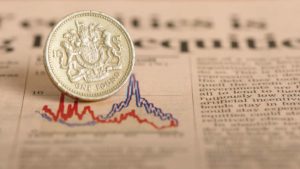Looking at the performance of THG (LSE: THG) since its stock market debut nearly four years ago makes me glad I decided not to buy into the much-hyped listing back then.
The shares have lost over 90% of their value during that time. The past year alone has seen a 32% fall in the THG share price.
But there is a lot to like about the company, in my opinion. So could the THG share price be a sleeper worth me acting on today with a long-term mindset?
Lots to like
Let me start by explaining what I see as the positive elements of the THG investment case. This is a business with sizeable revenues.
In the first quarter of this year, for example, the company turned over more than £450m. It has a sizeable customer base, with the beauty division’s loyalty programme having over 2m members.
THG owns what it describes as the fastest-growing sports nutrition brand across UK retailers: Myprotein. The nutrition business is growing fast, with international expansion in potentially huge markets such as India.
The company’s Ingenuity ecommerce platform is growing, with first quarter revenues up 4% year-on-year.
Strategic questions
However, a share does not lose over 90% of its value for no reason. Partly, I think the decline reflects an over ambitious listing price. But I also see grounds for investor concern when it comes to the underlying business.
THG is a difficult business to understand. It is a ragtag of online retail businesses mixed with a B2B digital commerce offering. That could make sense in the long term but, so far, I do not think THG has yet proven the profit potential of such a business model.
The company has not helped itself with the tone of its communication with the City as well as a host of sometimes confusing performance metrics.
Last year, revenue fell and the company reported an operating loss of £185m. Unusually, the company’s accounts do not report loss before tax in the main table of statutory results. A bit of searching in the body text shows that they came in at £252m.
In the headlines to those results, the company said: “Free cash flow breakeven achieved”. In fact, negative free cash flow was £1.1m. That is not free cash flow breakeven at the full-year level, even if it was much closer than the prior year, which saw £213.4m of net cash outflows.
Difficult to value
So is this lossmaking company with net debt of £218m a bargain? It could be, if it can use the assets it has built over recent years to generate ongoing sizeable revenues and move into profitability.
But the obscure basis of how it presents its accounts is already enough to put me off buying. THG is perfectly allowed to present its accounts the way it wants. But I feel it makes it even harder to understand a company that already has rather an enigmatic business model.
If I cannot confidently value the business, I cannot tell whether the THG share price is a bargain or a value trap. I therefore have no plans to invest.
This post was originally published on Motley Fool







